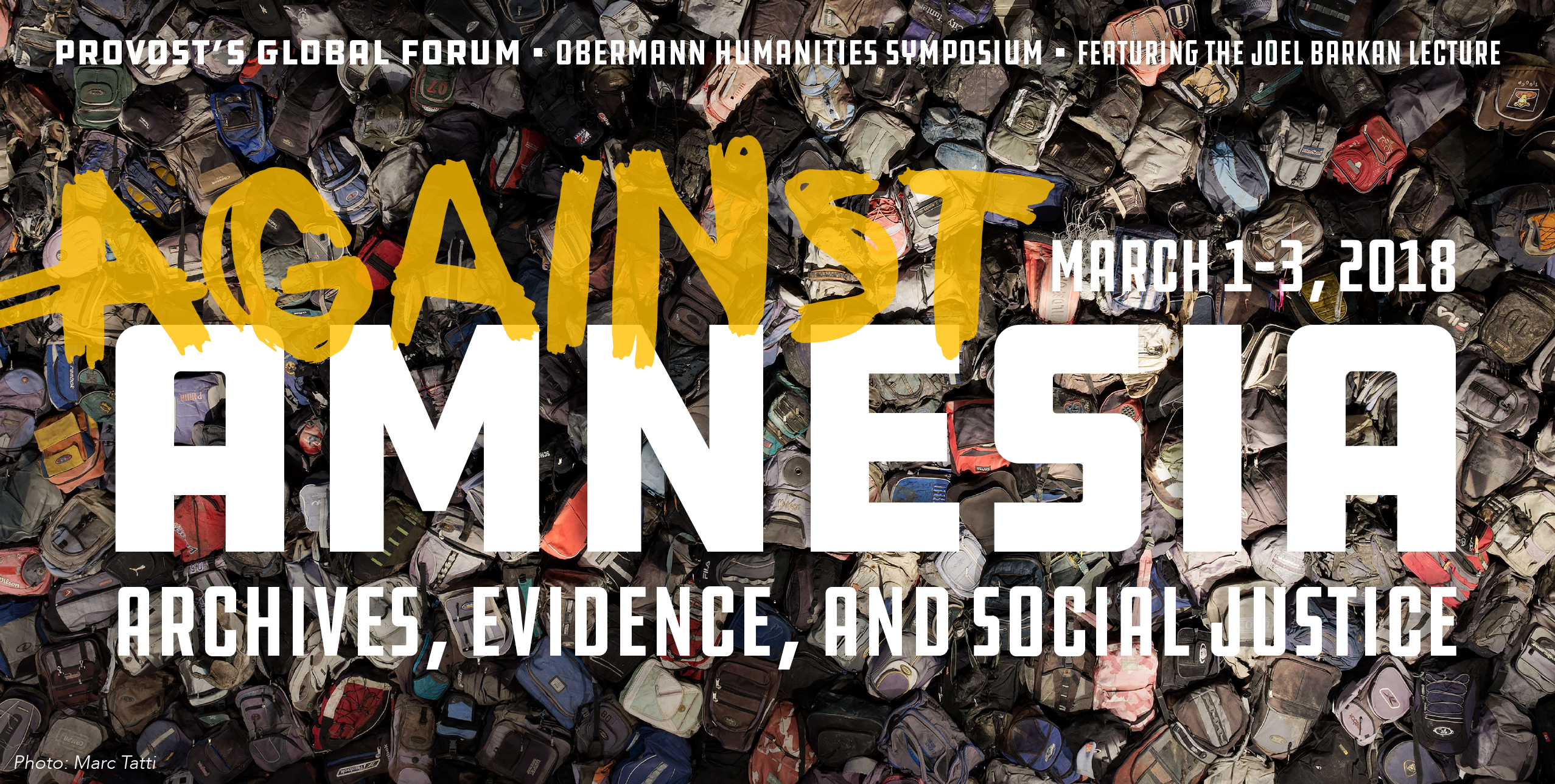Speakers
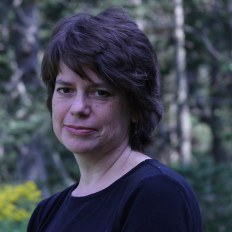 Elizabeth Maddock Dillon is Professor and Chair of the Department of English and Co-director of the NULab for Texts, Maps, and Networks at Northeastern University. She teaches courses in the fields of early American literature, Atlantic theatre and performance, transatlantic print culture, and the digital humanities. She is the author, most recently, of New World Drama: The Performative Commons in the Atlantic World, 1649-1849 (Duke University Press, 2014), which won the Barnard Hewitt Award for Outstanding Research in Theatre History from the American Society for Theatre Research. She is the founder of the award-winning crowd-sourced digital archive Our Marathon: The Boston Bombing Digital Archive, and the co-founder and co-director of the Early Caribbean Digital Archive. Elizabeth Maddock Dillon is Professor and Chair of the Department of English and Co-director of the NULab for Texts, Maps, and Networks at Northeastern University. She teaches courses in the fields of early American literature, Atlantic theatre and performance, transatlantic print culture, and the digital humanities. She is the author, most recently, of New World Drama: The Performative Commons in the Atlantic World, 1649-1849 (Duke University Press, 2014), which won the Barnard Hewitt Award for Outstanding Research in Theatre History from the American Society for Theatre Research. She is the founder of the award-winning crowd-sourced digital archive Our Marathon: The Boston Bombing Digital Archive, and the co-founder and co-director of the Early Caribbean Digital Archive. |
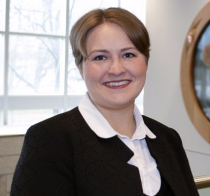 Sarah Dupont is Aboriginal Engagement Librarian at Xwi7xwa Library, University of British Columbia, Vancouver, Canada. Her work includes providing reference and instruction services, programming, and outreach with the campus’s Indigenous community. She also works with the Irving K. Barber Learning Centre, where her Aboriginal Engagement role extends more broadly off campus. At the IKBLC, her work includes projects such as the Indigitization program and the annual Aboriginal (Un)History Month exhibition. Dupont is the convenor of the First Nations Interest Group of the BC Library Association. Sarah Dupont is Aboriginal Engagement Librarian at Xwi7xwa Library, University of British Columbia, Vancouver, Canada. Her work includes providing reference and instruction services, programming, and outreach with the campus’s Indigenous community. She also works with the Irving K. Barber Learning Centre, where her Aboriginal Engagement role extends more broadly off campus. At the IKBLC, her work includes projects such as the Indigitization program and the annual Aboriginal (Un)History Month exhibition. Dupont is the convenor of the First Nations Interest Group of the BC Library Association. |
| Marie Kruger is an associate professor of African and diasporic literatures and film, postcolonial and transnational studies, and gender studies in the departments of English and Gender Women’s, and Sexuality Studies at the University of Iowa. Her current project, “Therapeutic Commodities: Apartheid, Trauma and Visual Culture in the New South Africa,” examines the representation and commodification of traumatic memory in South African visual culture with an emphasis on two areas of visual culture: feature and documentary films about individuals victimized by the apartheid state and their public appearance before the Truth and Reconciliation Commission and multi-media exhibitions in central Johannesburg that document human rights abuses in the city’s most infamous prison complex closely associated with state-sponsored violence, the exhibitions transform one of South Africa’s most notorious places of racial oppression into a site of public remembrance of traumatic violence. |
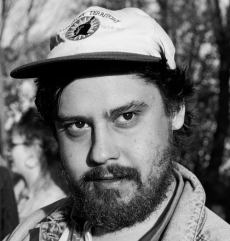 Adam Shingwak Khalil (Ojibway) is a filmmaker and artist. His practice attempts to subvert traditional forms of ethnography through humor, relation, and transgression. Khalil’s work has been exhibited at MoMA, Sundance, the Walker Arts Center, e-flux, UnionDocs, Microscope Gallery (New York), and Museo ExTeresa Arte Actual (Mexico City). Khalil is a 2018 Sundance Art of Non Fiction grant recipient, 2018 Sundance Indigenous Initiative Fellow, UnionDocs Collaborative Fellow, and Gates Millennium Scholar. In 2011, he graduated from the Film and Electronic Arts program at Bard College. Adam Shingwak Khalil (Ojibway) is a filmmaker and artist. His practice attempts to subvert traditional forms of ethnography through humor, relation, and transgression. Khalil’s work has been exhibited at MoMA, Sundance, the Walker Arts Center, e-flux, UnionDocs, Microscope Gallery (New York), and Museo ExTeresa Arte Actual (Mexico City). Khalil is a 2018 Sundance Art of Non Fiction grant recipient, 2018 Sundance Indigenous Initiative Fellow, UnionDocs Collaborative Fellow, and Gates Millennium Scholar. In 2011, he graduated from the Film and Electronic Arts program at Bard College. |
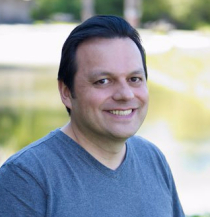 Gerry Lawson is a member of the Heiltsuk First Nation, and he manages the Oral History and Language Lab at the UBC Museum of Anthropology. With over 15 years in the field of Information Management and Heritage Digitization, he works to develop practical, scalable resources for Indigenous cultural heritage preservation, and to decolonize information practices. Gerry also acts as the Technology Lead for the innovative UBC Indigitization Program. Gerry Lawson is a member of the Heiltsuk First Nation, and he manages the Oral History and Language Lab at the UBC Museum of Anthropology. With over 15 years in the field of Information Management and Heritage Digitization, he works to develop practical, scalable resources for Indigenous cultural heritage preservation, and to decolonize information practices. Gerry also acts as the Technology Lead for the innovative UBC Indigitization Program. |
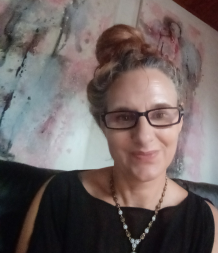 Debora Matthews started her archival career at the Alan Paton Centre Struggle Archives at the University of KwaZulu-Natal in Pietermaritzburg, followed by seven years as archival coordinator in the Struggles for Justice Programme at the South African History Archive (SAHA), an independent activist and human rights archive in Johannesburg. SAHA is dedicated to documenting, supporting, and promoting greater awareness of past and contemporary struggles for justice through archival practices and outreach, and the access to information laws. SAHA became the custodian of the archives of the Constitution Hill Trust when they moved into the former Women’s Jail section at the heritage site in 2012. Matthews is now an archives consultant, currently working for the Public Affairs Research Institute (PARI), developing and implementing a records and research data management system. She will also be working as a contract archivist at the GALA (Gay and Lesbian Memory in Action) Archives at the University of the Witwatersrand in 2018. Debora Matthews started her archival career at the Alan Paton Centre Struggle Archives at the University of KwaZulu-Natal in Pietermaritzburg, followed by seven years as archival coordinator in the Struggles for Justice Programme at the South African History Archive (SAHA), an independent activist and human rights archive in Johannesburg. SAHA is dedicated to documenting, supporting, and promoting greater awareness of past and contemporary struggles for justice through archival practices and outreach, and the access to information laws. SAHA became the custodian of the archives of the Constitution Hill Trust when they moved into the former Women’s Jail section at the heritage site in 2012. Matthews is now an archives consultant, currently working for the Public Affairs Research Institute (PARI), developing and implementing a records and research data management system. She will also be working as a contract archivist at the GALA (Gay and Lesbian Memory in Action) Archives at the University of the Witwatersrand in 2018. |
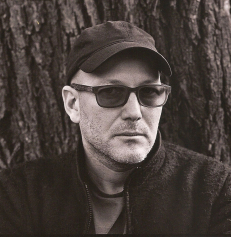 Bill Morrison is an internationally acclaimed experimental filmmaker best known for films that draw upon rare and often decaying archival material as sources for profound meditations on history and memory, and the ephemerality of both human life and mass media. Morrison’s work has often been produced in collaboration with innovative and influential composers, including John Adams, Bill Frissell, Philip Glass, and the Kronos Quartet, among many others. In 2013, his 2002 feature Decasia was added to the National Film Registry at the Library of Congress, making it the first film created in the 21st century to appear on that prestigious list. In 2014, his feature The Great Flood (2013), was awarded a Smithsonian Ingenuity Award for Historical Scholarship. Bill Morrison is an internationally acclaimed experimental filmmaker best known for films that draw upon rare and often decaying archival material as sources for profound meditations on history and memory, and the ephemerality of both human life and mass media. Morrison’s work has often been produced in collaboration with innovative and influential composers, including John Adams, Bill Frissell, Philip Glass, and the Kronos Quartet, among many others. In 2013, his 2002 feature Decasia was added to the National Film Registry at the Library of Congress, making it the first film created in the 21st century to appear on that prestigious list. In 2014, his feature The Great Flood (2013), was awarded a Smithsonian Ingenuity Award for Historical Scholarship. |
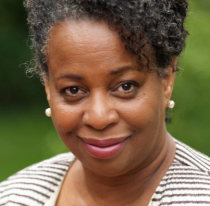 Sheri Parks is the immediate past Associate Dean for Research, Interdisciplinary Scholarship and Programming for the College or Arts and Humanities. She is also an associate professor of American Studies, and founding director of the Arts and Humanities Center for Synergy at the University of Maryland at College Park. In addition to her contributions via media outlets, Dr. Parks is the leader for one of the first National Endowment for the Humanities in the Public Square grants for Baltimore Stories: Narratives and the Life of an American City, and a co-leader of a $1.2 Andrew W. Mellon Foundation grant for Synergies among Digital Humanities and African American History and Culture. Her most recent publication is Fierce Angels: Living with a Legacy from the Sacred Dark Feminine to the Strong Black Woman. Fierce Angels was an Editor’s Pick by Essence magazine. Sheri Parks is the immediate past Associate Dean for Research, Interdisciplinary Scholarship and Programming for the College or Arts and Humanities. She is also an associate professor of American Studies, and founding director of the Arts and Humanities Center for Synergy at the University of Maryland at College Park. In addition to her contributions via media outlets, Dr. Parks is the leader for one of the first National Endowment for the Humanities in the Public Square grants for Baltimore Stories: Narratives and the Life of an American City, and a co-leader of a $1.2 Andrew W. Mellon Foundation grant for Synergies among Digital Humanities and African American History and Culture. Her most recent publication is Fierce Angels: Living with a Legacy from the Sacred Dark Feminine to the Strong Black Woman. Fierce Angels was an Editor’s Pick by Essence magazine. |
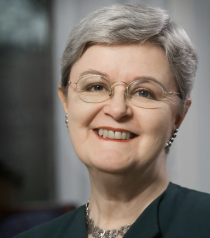 Trudy Huskamp Peterson is an archival consultant and certified archivist. She spent 24 years with the U.S. National Archives, including more than two years as Acting Archivist of the United States. She consulted with the truth commissions in South Africa and Honduras, the Special Court for Sierra Leone, the Nuclear Claims Tribunal of the Republic of the Marshall Islands, and worked for over three years with the police archives in Guatemala, training the staff in archival processes. Among her many publications are Final Acts: A Guide to Preserving the Records of Truth Commissions, a study of the records of 20 truth commissions, Temporary Courts, Permanent Records, a study of the records of five temporary international criminal courts, and “Securing Police Archives,” containing advice on managing records of police forces from former repressive regimes. Having received her PhD in History from the University of Iowa, she has given generously of her time to graduate students in this department. We are delighted to honor her tremendous contributions to those who most need a defender with an Ida Cordelia Beam Distinguished Visiting Professorship. Trudy Huskamp Peterson is an archival consultant and certified archivist. She spent 24 years with the U.S. National Archives, including more than two years as Acting Archivist of the United States. She consulted with the truth commissions in South Africa and Honduras, the Special Court for Sierra Leone, the Nuclear Claims Tribunal of the Republic of the Marshall Islands, and worked for over three years with the police archives in Guatemala, training the staff in archival processes. Among her many publications are Final Acts: A Guide to Preserving the Records of Truth Commissions, a study of the records of 20 truth commissions, Temporary Courts, Permanent Records, a study of the records of five temporary international criminal courts, and “Securing Police Archives,” containing advice on managing records of police forces from former repressive regimes. Having received her PhD in History from the University of Iowa, she has given generously of her time to graduate students in this department. We are delighted to honor her tremendous contributions to those who most need a defender with an Ida Cordelia Beam Distinguished Visiting Professorship. |
Previously, Pretzer worked at the Smithsonian’s National Museum of American History, the Winterthur Museum in Delaware, and, in Michigan, the Henry Ford Museum and Greenfield Village. He has taught courses on social history at the University of Michigan, Dearborn, and the history of technology and museum studies at Central Michigan University where he also directed the university museum. He has developed exhibitions on topics such as 18th century American social history, Thomas Edison’s “invention factory,” American industrial history, the Harlem Renaissance, and American “freedom movements” (encompassing the American Revolution, Civil War and Emancipation, Women’s Suffrage and Civil Rights). He has published essays on topics ranging from labor and industrial history to the Civil War and Reconstruction to the modern Civil Rights Movement, and from technology education and sustainable development to the practice of public history. Pretzer has served as a museum consultant, the president of a local school board, a member of a national commission on standards for technology education, and a grant reviewer for the Department of Education, Institute of Museum and Library Services, and National Endowment for the Humanities. Pretzer received his B.A. from Stanford University and his Ph.D. from Northern Illinois University. Iowans who have seen the challenge of creating a museum without walls will appreciate Museum Director Lonnie Bunch’s moving account of the decades-long struggle to build the National Museum of African American History and Culture. |
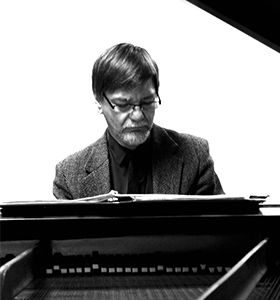 John Rapson is Professor Emeritus in the University of Iowa’s School of Music. A composer and recording artist whose work mixes ethnic and experimental elements with more conventional jazz forms, Rapson has recorded and collaborated on projects with numerous artists. In 1995, he was commissioned by AT&T to compose Sound Luminesce, a jazz suite that united musicians in Iowa and Japan via fibre optic technology in the first ever trans-pacific “live” performance. More recently, he collaborated with Danyel Gaglione to produce a jazz tone poem called Hot Tamale Louie based on the life of Zarif Khan, an immigrant from Afghanistan, which was performed in 2016 and released as a DVD in the summer of 2017. John Rapson is Professor Emeritus in the University of Iowa’s School of Music. A composer and recording artist whose work mixes ethnic and experimental elements with more conventional jazz forms, Rapson has recorded and collaborated on projects with numerous artists. In 1995, he was commissioned by AT&T to compose Sound Luminesce, a jazz suite that united musicians in Iowa and Japan via fibre optic technology in the first ever trans-pacific “live” performance. More recently, he collaborated with Danyel Gaglione to produce a jazz tone poem called Hot Tamale Louie based on the life of Zarif Khan, an immigrant from Afghanistan, which was performed in 2016 and released as a DVD in the summer of 2017. |
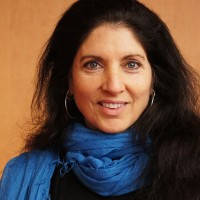 Lisa Schlesinger is a playwright whose plays include Celestial Bodies, Wal-martyrs, Same Egg, Manny and Chicken, Rock Ends Ahead, The Bones of Danny Winston, and Twenty-One Positions (with Naomi Wallace and Abdel AbuSrour). She is currently writing the libretto, Harmonicus Mundi, the second piece in the Celestial Bodies Trilogy and In the Wake of the Graybow Riots, for her Slow Theatre Project. She has received commissions from the Guthrie Theatre, the BBC, Upstart Crow Project, the UI International Writing Program, Ensemble Studio Theatre, and fellowships from the NEA, CEC International, the Sloan Foundation, among others. From 2006-2014, she coordinated the Playwriting Program at Columbia College Chicago before returning to the University of Iowa, where she earned her MFAs in theatre arts and fiction writing from the Playwrights’ Workshop and Writers’ Workshop. Lisa Schlesinger is a playwright whose plays include Celestial Bodies, Wal-martyrs, Same Egg, Manny and Chicken, Rock Ends Ahead, The Bones of Danny Winston, and Twenty-One Positions (with Naomi Wallace and Abdel AbuSrour). She is currently writing the libretto, Harmonicus Mundi, the second piece in the Celestial Bodies Trilogy and In the Wake of the Graybow Riots, for her Slow Theatre Project. She has received commissions from the Guthrie Theatre, the BBC, Upstart Crow Project, the UI International Writing Program, Ensemble Studio Theatre, and fellowships from the NEA, CEC International, the Sloan Foundation, among others. From 2006-2014, she coordinated the Playwriting Program at Columbia College Chicago before returning to the University of Iowa, where she earned her MFAs in theatre arts and fiction writing from the Playwrights’ Workshop and Writers’ Workshop. |
Johanna Schoen is a professor of history at Rutgers University-New Brunswick with an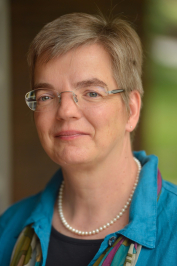 affiliation at the Institute for Health, Health Care Policy, and Aging Research. Her chief interests are the history of women and medicine, the history of reproductive rights, and the history of sexuality. Her research traces women’s health and reproductive care through the twentieth century. She is the author of Abortion After Roe (University of North Carolina Press, 2015) which won the Welch Medal of the American Association for the History of Medicine. For the past decades, she has worked with abortion providers to preserve the history of legal abortion in the United States and to use historical analysis and insights to help preserve access to abortion care. Her current work explores ethical frameworks in defense of abortion care and the right to die. affiliation at the Institute for Health, Health Care Policy, and Aging Research. Her chief interests are the history of women and medicine, the history of reproductive rights, and the history of sexuality. Her research traces women’s health and reproductive care through the twentieth century. She is the author of Abortion After Roe (University of North Carolina Press, 2015) which won the Welch Medal of the American Association for the History of Medicine. For the past decades, she has worked with abortion providers to preserve the history of legal abortion in the United States and to use historical analysis and insights to help preserve access to abortion care. Her current work explores ethical frameworks in defense of abortion care and the right to die. |
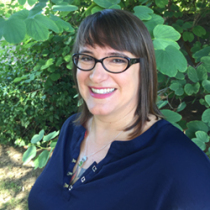 Jacqueline Wernimont is an anti-racist, feminist scholar working toward greater justice in digital cultures and an assistant professor in the English department at Arizona State University, where she also serves as founding co-director of the HS Collab, an space for art+ science collaborations on human security. Wernimont directs ASU’s Nexus Lab and the graduate certificate program in digital humanities. Her soon-to-be published book, Numbered Lives: A History of the Media of Measure (MIT, Fall 2018), traces a 500-year history of technologies that attempt to quantify human life. She is a network weaver across humanities, arts, and sciences. This work includes co-Directing HASTAC and ASU’s Human Security Collaboratory, running Nexus: A digital research co-op, and being appointed a fellow of the Global Security Institute. She is also active in FemTechNet. Jacqueline Wernimont is an anti-racist, feminist scholar working toward greater justice in digital cultures and an assistant professor in the English department at Arizona State University, where she also serves as founding co-director of the HS Collab, an space for art+ science collaborations on human security. Wernimont directs ASU’s Nexus Lab and the graduate certificate program in digital humanities. Her soon-to-be published book, Numbered Lives: A History of the Media of Measure (MIT, Fall 2018), traces a 500-year history of technologies that attempt to quantify human life. She is a network weaver across humanities, arts, and sciences. This work includes co-Directing HASTAC and ASU’s Human Security Collaboratory, running Nexus: A digital research co-op, and being appointed a fellow of the Global Security Institute. She is also active in FemTechNet.
Watch Wernimont discuss archives and performance: https://www.youtube.com/watch?v=DV7dUrrji84 |
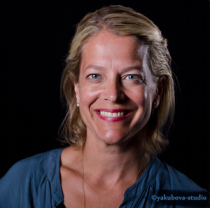 Bethany Wiggin is Associate Professor at the University of Pennsylvania and is Founding Director of the Penn Program in Environmental Humanities and holds appointments in the Departments of German and English and the Program in Comparative Literature. Her research explores the history of the book and material culture, the rise of commodity culture, and the transformation of the Atlantic world in the wake of long-distance sea-born trade. She is at work on Utopia Found, Lost, and Re-Imagined in Penn’s Woods. She was Dramaturg for A Period of Animate Existence, an opera about climate change made by Troy Herion, Mimi Lien, and Dan Rothenberg, and others. A recipient of a Whiting Fellowship for Public Engagement, she designed the project Floating on Warmer Waters to expand collaborative research in and along the Lower Schuylkill River. Bethany Wiggin is Associate Professor at the University of Pennsylvania and is Founding Director of the Penn Program in Environmental Humanities and holds appointments in the Departments of German and English and the Program in Comparative Literature. Her research explores the history of the book and material culture, the rise of commodity culture, and the transformation of the Atlantic world in the wake of long-distance sea-born trade. She is at work on Utopia Found, Lost, and Re-Imagined in Penn’s Woods. She was Dramaturg for A Period of Animate Existence, an opera about climate change made by Troy Herion, Mimi Lien, and Dan Rothenberg, and others. A recipient of a Whiting Fellowship for Public Engagement, she designed the project Floating on Warmer Waters to expand collaborative research in and along the Lower Schuylkill River. Wiggin is a co-organizer of Data Refuge, which launched November 2016 in Philadelphia to draw attention to how climate denial endangers federal environmental data. With the help of thousands of civic partners and volunteers, the project has rapidly spread to over fifty cities and towns across the country. Now, Data Refuge is building a storybank to document how data lives in the world—and how it connects people, places, and non-human species. |
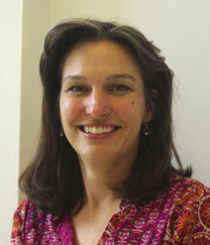 Rachel Marie-Crane Williams is an artist and teacher currently employed as an Associate Professor and Chair of Gender, Women’s, and Sexuality Studies at the University of Iowa and has a joint appointment School of Art and Art History (Intermedia). Her work as a researcher and creative scholar has always been focused on women’s issues, community, art, and people who are incarcerated. In addition to her large body of work as a painter, she has had American alternative/single creator comics and graphic novels at the heart of her creative scholarship for the past few years. Her graphic scholarship has been published by the Jane Addams Hull House Museum, the Journal of Cultural Research in Art Education, and the International Journal of Comic Art. Her current projects include a graphic novel about the Detroit Race Riots of 1943, a mini comic about police brutality, and The Prison Chronicles, a series of stories about working in prisons. Rachel Marie-Crane Williams is an artist and teacher currently employed as an Associate Professor and Chair of Gender, Women’s, and Sexuality Studies at the University of Iowa and has a joint appointment School of Art and Art History (Intermedia). Her work as a researcher and creative scholar has always been focused on women’s issues, community, art, and people who are incarcerated. In addition to her large body of work as a painter, she has had American alternative/single creator comics and graphic novels at the heart of her creative scholarship for the past few years. Her graphic scholarship has been published by the Jane Addams Hull House Museum, the Journal of Cultural Research in Art Education, and the International Journal of Comic Art. Her current projects include a graphic novel about the Detroit Race Riots of 1943, a mini comic about police brutality, and The Prison Chronicles, a series of stories about working in prisons. |
